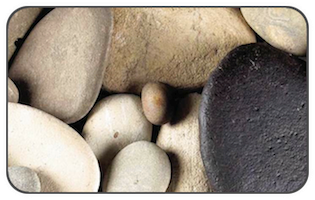Examples of Speeches, What Is It, Who Has It, and How Can It Be Unraveled? "White privilege" is a term that is being thrown around a lot. Many of us who are white don't feel very powerful and certainly don't believe we have gotten anything we haven't worked for. Others of us don't really even see ourselves as being members of a race. This speech or workshop is designed to begin at the beginning: what is white privilege, how does it shape the systems and institutions of which we all a part, and what can we do, particularly those of us who are white, to take it apart in order to create a more just world? This is not about guilt and blame; it is about taking responsibility for making institutional change. In order to educate for a socially just world, new skills are necessary for leadership, critical problem solving and change. Without intentionally acknowledging and addressing our biases, assumptions, and privilege, we continue to sustain the barriers that divide us. Our world may be common, but because of the unearned privileges of some, the experiences are frequently uncommon. As our institutions grow more diverse, it is essential that the community members develop the ability to engage in authentic and often difficult conversations shaped by difference. Individual and organizational changes occur when stereotypes and behaviors are continuously examined and authentic alliances are able to form. To be effective, community members, as leaders and change agents, must learn how it is in their best interest to look at their biases and assumptions about others and to listen to others' perspectives. This speech or workshop addresses different ways to create opportunities for open dialogue across differences at your institution. People all over the country are calling themselves "allies" without really understanding what kinds of behaviors, expectations, and commitments are attached to identifying themselves as allies. This is particularly true for those of us who have systemically-granted privilege based on race, gender, sexual orientation, socioeconomic class, religion, ability, and so on. This speech or workshop suggests concrete ways that people with privilege can best ally themselves with others to help bring about systemic change.
Those of us who have systemically-granted privileges are often in positions of power and influence in the institutions of which we are a part. We want to help lead our organizations to be equitable and just, but often we don't have the knowledge and skills to use ourselves as tools for change. This speech or workshop begins with the concepts of privilege and systemic organizational change. It addresses the attributes of an effective leader who has privilege and why she or he would invest energy in envisioning and creating a more inclusive workplace. People of color and some white people have been writing and speaking for years about how we as white women collude with white men to maintain power in "mainstream" hands; there are various examples throughout history. Yet, many of us who are white women have little sense of his practice or perspective and are taken aback to find that we are not necessarily viewed as trustworthy or as allies. This workshop provides opportunities for us to see how, based on our systemically-granted privileges, we unconsciously or unconsciously maintain the systems as they are currently structured, even though that is not our intent. In it, we are able to develop concrete strategies for changing these behaviors, both individually and as a group. Organizational change for social justice is life-long work that demands deep personal commitment and the determination to persevere when the path is lonely and hard. It requires faith that change is possible and a community of people who push us, challenge us, and hold us as we grow and learn. Having been given the gifts of guidance and the trust that we would use what we were taught, it is our responsibility as elders to pass on what we know. Additional topics:
|

FRANCES E. KENDALL, Ph.D.
Specializing in Issues of Diversity and White Privilege